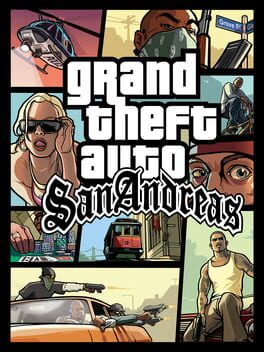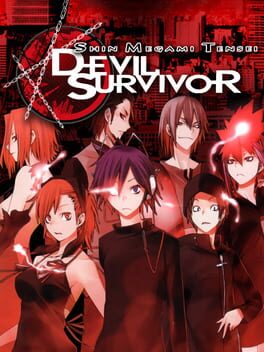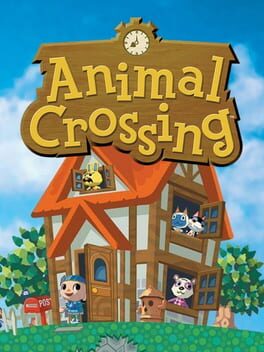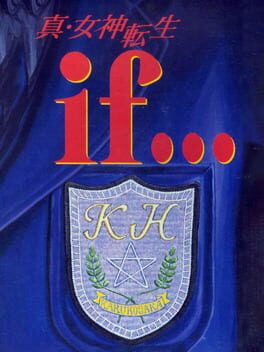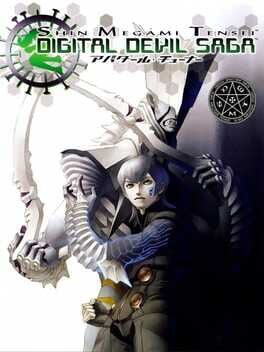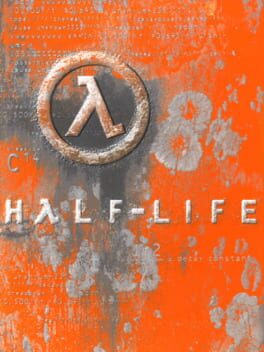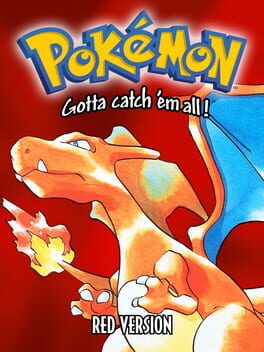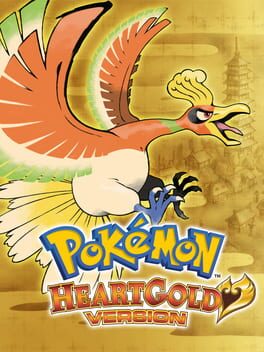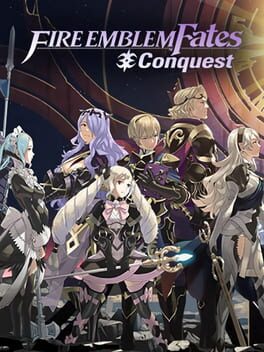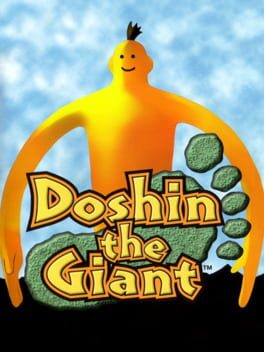jabronistomper
1998
Metal Gear Solid is a remarkably polished game for 1998. It's visually very striking: the UI design is slick, and all the menus feel really good to navigate, from the satisfying clicks of the equipment menus and the beeps and boops of the Codec. Shadow Moses Island's environments are beautifully portrayed, and for the most part feel very visually distinct from each other while still communicating the same cold, inhuman and metallic vibe. Yoji Shinkawa's character artwork is AMAZING, and it made the many long Codec calls so much better. I thought the English voice cast did an excellent job, especially for the time, though holy shit Liquid Snake’s accent is horrible (in the best way possible).
My favorite part of the game was definitely the meta-gamey real world “put your controller to your arm so Naomi can give you a massage” type shit. Of course, the most famous instance of fourth-wall breaking comes with Psycho Mantis, and he’s amazing (though MGS was the first game I played on my PS1 memory card so he didn’t have anything cool to say about my nonexistent Konami library), but I was surprised by other cool stuff like having to mash circle during the torture scene to stay alive - my last save before the torture room was at least an hour before, so it really felt like I was mashing to save something important: not just Meryl’s life, but my game data. Revolver Ocelot even reminded me that I hadn't saved in a while, and it literally made my heart sink. It was really tense, and unlike anything I’ve ever played before.
I wasn’t really blown away by MGS’s writing, and found all the stuff about genes and genomes or whatever entertaining, if not also really stupid. I think that’s all kind of the point, though: from what I gather, at least, Metal Gear Solid isn’t really meant to be a grand, emotionally resonant narrative. It does exactly what it needs to do to progress the story along and keep the player hooked. While I wasn’t exactly emotionally invested in Snake’s mission, I needed to know what insane plot beat was next. As for characters, I feel like Snake and Otacon are the clear standouts. Kojima's infamous inability to write women definitely manifested in Meryl, a character with a pretty lackluster and boring arc, as well as an extremely forced romantic relationship with Snake, but at the end of the day it didn’t really hinder my enjoyment of the game too much. At the risk of giving Kojima too much credit, it seemed like it was all an intended part of the experience.
I generally liked the moment-to-moment gameplay. This was basically my first experience with a game where stealth is a primary mechanic, and for the most part I liked it, aside from bullshit like getting spotted by security cameras out of your vision and spotted by guards off-screen. Metal Gear Solid’s polish starts to dull once you actually have to fight things, though. I’ve not done much reading about general receptions to this game, but I’m very sure that thousands of other people have lambasted the game’s clunky shooting mechanics, so I won’t continue beating on the dead horse, but man some of the boss fights sucked ass, specifically the final boss and Vulcan Raven.
I’m really looking forward to playing MGS2. If they can polish the gunplay up a bit, I could see it being one of my favorite games ever.
My favorite part of the game was definitely the meta-gamey real world “put your controller to your arm so Naomi can give you a massage” type shit. Of course, the most famous instance of fourth-wall breaking comes with Psycho Mantis, and he’s amazing (though MGS was the first game I played on my PS1 memory card so he didn’t have anything cool to say about my nonexistent Konami library), but I was surprised by other cool stuff like having to mash circle during the torture scene to stay alive - my last save before the torture room was at least an hour before, so it really felt like I was mashing to save something important: not just Meryl’s life, but my game data. Revolver Ocelot even reminded me that I hadn't saved in a while, and it literally made my heart sink. It was really tense, and unlike anything I’ve ever played before.
I wasn’t really blown away by MGS’s writing, and found all the stuff about genes and genomes or whatever entertaining, if not also really stupid. I think that’s all kind of the point, though: from what I gather, at least, Metal Gear Solid isn’t really meant to be a grand, emotionally resonant narrative. It does exactly what it needs to do to progress the story along and keep the player hooked. While I wasn’t exactly emotionally invested in Snake’s mission, I needed to know what insane plot beat was next. As for characters, I feel like Snake and Otacon are the clear standouts. Kojima's infamous inability to write women definitely manifested in Meryl, a character with a pretty lackluster and boring arc, as well as an extremely forced romantic relationship with Snake, but at the end of the day it didn’t really hinder my enjoyment of the game too much. At the risk of giving Kojima too much credit, it seemed like it was all an intended part of the experience.
I generally liked the moment-to-moment gameplay. This was basically my first experience with a game where stealth is a primary mechanic, and for the most part I liked it, aside from bullshit like getting spotted by security cameras out of your vision and spotted by guards off-screen. Metal Gear Solid’s polish starts to dull once you actually have to fight things, though. I’ve not done much reading about general receptions to this game, but I’m very sure that thousands of other people have lambasted the game’s clunky shooting mechanics, so I won’t continue beating on the dead horse, but man some of the boss fights sucked ass, specifically the final boss and Vulcan Raven.
I’m really looking forward to playing MGS2. If they can polish the gunplay up a bit, I could see it being one of my favorite games ever.
Game kicks ass. I tried to get into the missions and actually play the game but I couldn't really get into them, especially not when driving around and fucking with cheat codes is so much more fun. I enjoyed what little I played of the story mode but I don't think I'll ever finish it, a bit too much tedium for my liking. There's a lot of really good voice acting - I had no idea Samuel L. Jackson was in this game, the opening cutscene kinda stunned me. Rockstar got a lot of (rightful) shit for saying they'd sell GTA 6 for $100, but if the gameplay completely consisted of stealing motorcycles and doing crazy ass stunts off cliffs I'd pay $100 for it.
1995
Devil Survivor’s number one goal is to make the player feel like they’re playing something cool. It has this aesthetic I haven’t seen in many other games which I continually referred to as “trashy anime” while playing - it’s so over the top, so stupid, so edgy, that it actually tips the scale back to being kind of amazing. I love the main character’s stupid fucking cat headphones, I love Naoya’s weird-ass cloak. I sincerely regret not recruiting the playable Black Frost, and I love that there’s even an option to use a demon as a main party member. There's only so far this charm can go before it dissipates, though. I found the heavy sexualization of the women in the game who are overwhelmingly minors to be disgusting, though. Devil Survivor’s writing reeks of misogyny - the most present woman in the game, Yuzu (a character who I’m sure capital g Gamers were very Normal about in 2009) spends most of the game either whining about wanting to go home, or fawning over the protagonist. At first, I enjoyed Yuzu’s trepidation towards the whole act of demon summoning. I found it to be somewhat realistic to how someone might react in a similar situation in real life, but it became clear over the course of the narrative that Yuzu was not going to get any big character moments throughout the story to grow. Her ending is pretty insultingly bad, in my opinion. A complete waste of a potentially interesting character.
Generally, I found the writing in Devil Survivor to be kinda hit or miss. They do a good job framing the narrative with interesting plot devices like the Death Clocks and Laplace Mail, but the game’s pacing removes all the interesting tension that those devices could create. This game’s midsection, especially days three four and five, are dreadfully boring, with little of note happening aside from the boss fights. The player just kind of aimlessly wanders around Tokyo, talking to random NPCs to pass the time and lock in their alignment. Devil Survivor’s pace in general is just far too slow - I hate being that guy who needs a speed up button to play RPGs, but without a speed-up button I seriously don’t think I would’ve been able to finish this game. Though, when the writing hits, it hits. I love how they handled routes in this game - there are no routes that felt objectively bad (aside from Yuzu’s), and I appreciate that the game lets you select which route you want instead of just thrusting you into whichever one your alignment score matches up with. Unfortunately, this doesn’t salvage any of the game’s pacing problems, but at least after slogging through painfully slow and unfun battles you’re rewarded with something cool sometimes.
Before I get into the gameplay, I should note that I played through Devil Survivor using a strength build. According to the few fourteen-year-old GameFAQs threads I read about this game, this is the shittier build compared to magic. It definitely tainted some of my experience. I did the Naoya route as my first (and probably only) playthrough, and two out of three of my party members going into the endgame were using physical skills, those being Atsuro and Kaido. With my MC taking all the good physical skills and Naoya gorging himself on literally all of my magic based skills, I was left with Kaido taking all the non-preferred physical skills and poor Atsuro being forced to use support magic, something he’s not very good at. I ended up kind of loving this team aesthetically, but it was miserable to slog through the seventh day with just the main character, Naoya, and what essentially amounted to dead weight.
Most SMT games require little to no grinding thanks to demon fusion - all you really need are three demons that are around the player character’s level. Swapping out demons for boss fights is easy because you only need to create three demons at most. This entire approach is lost in Devil Survivor because the player is deploying eight individual demons in every battle. Deceptively, this causes the game’s most frustrating problem: in order to create stronger demons, you’ll usually be fusing demons from your rotation of eight. When you create a new demon, odds are you will then need to fill a vacant slot on a character’s team. Mind you, there’s no Compendium in the DS version of this game, which drastically changes the way the player interacts with fusion. Any demon that you’ve leveled is essentially lost forever if you fuse it away. You can fuse the demon again, but you’ll have to re-level it to relearn all of its skills. So, you must use the Demon Auction system to bolster your roster for fusion. This wouldn’t be as much of a problem if demons weren’t so expensive, but in the late game, demons become absurdly expensive and thus necessitate grinding Free Battles to be able to afford them. Not only that, but Free Battle grinding is further necessitated for cracking skills and leveling your team for the many absurd late-game spikes in difficulty.
Speaking of difficulty spikes, the spikes in Devil Survivor are pretty egregious. Having to run a boss rush of all the previous Bel demons into the final boss was stupid. It didn’t feel like my tactics were being challenged in any way, it was just abusing the game’s imbalance (Drain + Holy Dance) until I finally won. In general, I strongly disliked that Devil Survivor was an SPRG, but my only experience in the genre is from Fire Emblem so I don’t really feel qualified to critique Devil Survivor’s implementation of the genre. The SMT-styled battles were pretty good, but nothing special.
Devil Survivor is like mainline SMT’s less cool younger brother who can do Tech Deck tricks - it's neat, but ultimately nothing of real value.
Generally, I found the writing in Devil Survivor to be kinda hit or miss. They do a good job framing the narrative with interesting plot devices like the Death Clocks and Laplace Mail, but the game’s pacing removes all the interesting tension that those devices could create. This game’s midsection, especially days three four and five, are dreadfully boring, with little of note happening aside from the boss fights. The player just kind of aimlessly wanders around Tokyo, talking to random NPCs to pass the time and lock in their alignment. Devil Survivor’s pace in general is just far too slow - I hate being that guy who needs a speed up button to play RPGs, but without a speed-up button I seriously don’t think I would’ve been able to finish this game. Though, when the writing hits, it hits. I love how they handled routes in this game - there are no routes that felt objectively bad (aside from Yuzu’s), and I appreciate that the game lets you select which route you want instead of just thrusting you into whichever one your alignment score matches up with. Unfortunately, this doesn’t salvage any of the game’s pacing problems, but at least after slogging through painfully slow and unfun battles you’re rewarded with something cool sometimes.
Before I get into the gameplay, I should note that I played through Devil Survivor using a strength build. According to the few fourteen-year-old GameFAQs threads I read about this game, this is the shittier build compared to magic. It definitely tainted some of my experience. I did the Naoya route as my first (and probably only) playthrough, and two out of three of my party members going into the endgame were using physical skills, those being Atsuro and Kaido. With my MC taking all the good physical skills and Naoya gorging himself on literally all of my magic based skills, I was left with Kaido taking all the non-preferred physical skills and poor Atsuro being forced to use support magic, something he’s not very good at. I ended up kind of loving this team aesthetically, but it was miserable to slog through the seventh day with just the main character, Naoya, and what essentially amounted to dead weight.
Most SMT games require little to no grinding thanks to demon fusion - all you really need are three demons that are around the player character’s level. Swapping out demons for boss fights is easy because you only need to create three demons at most. This entire approach is lost in Devil Survivor because the player is deploying eight individual demons in every battle. Deceptively, this causes the game’s most frustrating problem: in order to create stronger demons, you’ll usually be fusing demons from your rotation of eight. When you create a new demon, odds are you will then need to fill a vacant slot on a character’s team. Mind you, there’s no Compendium in the DS version of this game, which drastically changes the way the player interacts with fusion. Any demon that you’ve leveled is essentially lost forever if you fuse it away. You can fuse the demon again, but you’ll have to re-level it to relearn all of its skills. So, you must use the Demon Auction system to bolster your roster for fusion. This wouldn’t be as much of a problem if demons weren’t so expensive, but in the late game, demons become absurdly expensive and thus necessitate grinding Free Battles to be able to afford them. Not only that, but Free Battle grinding is further necessitated for cracking skills and leveling your team for the many absurd late-game spikes in difficulty.
Speaking of difficulty spikes, the spikes in Devil Survivor are pretty egregious. Having to run a boss rush of all the previous Bel demons into the final boss was stupid. It didn’t feel like my tactics were being challenged in any way, it was just abusing the game’s imbalance (Drain + Holy Dance) until I finally won. In general, I strongly disliked that Devil Survivor was an SPRG, but my only experience in the genre is from Fire Emblem so I don’t really feel qualified to critique Devil Survivor’s implementation of the genre. The SMT-styled battles were pretty good, but nothing special.
Devil Survivor is like mainline SMT’s less cool younger brother who can do Tech Deck tricks - it's neat, but ultimately nothing of real value.
2001
Probably my favorite Animal Crossing game. In my first week of playing I was called basically every PG version of "freak" possible. The "mean" villagers give the game a super unique tone, and make the villagers more endearing to the player. They really do act like animals. They're often irrational, prone to quick shifts in temperament, blunt, sometimes annoying, mischievous, and a little stupid. I lost a game to Samson, a little rat guy in my village, and he took all of my money and gave me a pitfall seed for my troubles. Fucker. Villagers in Animal Crossing don't just exist to hang out, look cute, and occasionally give you items like in future titles, they're a key part of the play experience. They feel real, whereas in New Horizons they feel like vaguely personable humans wearing animal flesh.
The player has limited influence on their town, but honestly I feel like that enhances the experience for me: In New Horizons especially and New Leaf to an extent, the player is bombarded with quality of life tools which can be used to fully decorate and beautify their town. It gets to the point where I feel obligated to engage with these systems and create a spotless, boring town that is exactly to my liking. Animal Crossing doesn't even give you the chance to do this- aside from planting flowers and trees, there is little you can do to influence the layout of the town. This made the game far more relaxing for me, as I could play at my own pace and enjoy whatever the game decided to throw at me. I really like this game, and see myself continuing to play it for a long time.
(also the music and graphics are really good)
The player has limited influence on their town, but honestly I feel like that enhances the experience for me: In New Horizons especially and New Leaf to an extent, the player is bombarded with quality of life tools which can be used to fully decorate and beautify their town. It gets to the point where I feel obligated to engage with these systems and create a spotless, boring town that is exactly to my liking. Animal Crossing doesn't even give you the chance to do this- aside from planting flowers and trees, there is little you can do to influence the layout of the town. This made the game far more relaxing for me, as I could play at my own pace and enjoy whatever the game decided to throw at me. I really like this game, and see myself continuing to play it for a long time.
(also the music and graphics are really good)
Shin Megami Tensei If... was my first old-school dungeon crawler, and for what it's worth it has a lot of interesting ideas, though they don't really coalesce into anything good. I found the game's aesthetic and music to be pretty cool, at least. I wanted a lot more out of the If...'s plot, and found myself dropping the game at the World of Sloth because I had no motivation to continue. One of the most aggressively mid games I've ever played, though I don't regret trying it out in the slightest.
2001
Inject the PS2 version's aesthetic into my fucking veins. Final Fantasy X's remaster is borderline insulting and an inferior way to experience this amazing game. Square really nailed the RPG mechanics in this one, with the battle system innovating nicely over the somewhat dated ATB system. Being able to seamlessly swap party members in and out of combat with no action penalty allowed me to make full use of my entire party, which is something I really appreciate. The Sphere Grid is pure brilliance as well: it is a system that is at once mechanically rich and simple to understand. It's a shame Square completely dropped these systems in future Final Fantasy titles, because I would do anything for another Final Fantasy that plays like X.
It's a testament to how insanely good this game is for me to be able overlook the objectively awful and downright painful cloister puzzles and still see this game as an absolute masterpiece.
It's a testament to how insanely good this game is for me to be able overlook the objectively awful and downright painful cloister puzzles and still see this game as an absolute masterpiece.
Digital Devil Saga doesn't reach the mechanical or narrative heights of other Shin Megami Tensei games, but it's a super consistently enjoyable game. I adore the game's early 2000s techno aesthetic, which is bolstered by the game's excellent soundtrack which is some of Shoji Meguro's best work.
I'm not sure what it is, though, but I'm not really sold on playing a second game's worth of Digital Devil Saga. I feel like I've already gotten what I want out of the duology despite only playing the first entry. I liked the narrative and characters well enough, but they didn't really capture my interest beyond a simple "oh, this is cool". I'll get around to playing it one day, though.
Also, the English opening is dope as fuck.
I'm not sure what it is, though, but I'm not really sold on playing a second game's worth of Digital Devil Saga. I feel like I've already gotten what I want out of the duology despite only playing the first entry. I liked the narrative and characters well enough, but they didn't really capture my interest beyond a simple "oh, this is cool". I'll get around to playing it one day, though.
Also, the English opening is dope as fuck.
1998
I'm normally ambivalent towards single-player shooters, but I think that Half-Life's focus on strategy as opposed to the actual act of shooting captivated my interest. Resource management combined with intelligent enemy AI and smart level design coalesce to create a deeply tense atmosphere which is further strengthened by the game's immaculate presentation.
Though the dated graphics can at times impact the readability of certain environments, their contribution to the game's tone is palpable. Black Mesa's sterile gray halls, the surface's red desert, and the orange dimension of Xen combine to give the player a great sense of alienation and loneliness. The sheer size of the Black Mesa facility was conveyed very cohesively as well: despite each level being different in meaningful ways, I never felt like I was in a completely different location. I love how seamlessly the game's levels flow in that way, where you'll be chugging along and all of the sudden be thrust into a new level.
There's some really great sound design, too. I love how loud the game can be, with military soldiers barking nonsensical radio messages, aliens making weird noises, explosions, gunfire and occasional music all piling on top of each other in combat scenarios to create unbelievably tense encounters. This clashes with the utter silence of the game when the fighting is over, creating an eerie effect which kept me on my toes throughout the entire experience.
In many ways, it felt to me that Half-Life was the natural evolution of DOOM, which I already loved. For me, it's in the "Legendary Game That Lives Up To Its Reputation" club, squeezed between Final Fantasy VII and Super Mario Bros. 3.
Though the dated graphics can at times impact the readability of certain environments, their contribution to the game's tone is palpable. Black Mesa's sterile gray halls, the surface's red desert, and the orange dimension of Xen combine to give the player a great sense of alienation and loneliness. The sheer size of the Black Mesa facility was conveyed very cohesively as well: despite each level being different in meaningful ways, I never felt like I was in a completely different location. I love how seamlessly the game's levels flow in that way, where you'll be chugging along and all of the sudden be thrust into a new level.
There's some really great sound design, too. I love how loud the game can be, with military soldiers barking nonsensical radio messages, aliens making weird noises, explosions, gunfire and occasional music all piling on top of each other in combat scenarios to create unbelievably tense encounters. This clashes with the utter silence of the game when the fighting is over, creating an eerie effect which kept me on my toes throughout the entire experience.
In many ways, it felt to me that Half-Life was the natural evolution of DOOM, which I already loved. For me, it's in the "Legendary Game That Lives Up To Its Reputation" club, squeezed between Final Fantasy VII and Super Mario Bros. 3.
1999
1996
(mild spoilers for the OG FF7)
For some reason, I was dismissive of Final Fantasy as a franchise for a good portion of my youth. Upon playing the original Final Fantasy VII on a whim over the course of a high-school spring break, I came to understand that FF7 was leaps and bounds above the caliber of RPGs I had played up until that point in my life. I was enthralled by the game, the janky polygonal models, the antiquated solid blue menus, the charmingly awkward translation, Nobuo Uematsu’s masterclass of a soundtrack. FF7 felt so miraculously good that it could never be recreated, meaningful and immersive in a way that modern games obsessed with fidelity lose sight of. With simple polygonal models and rudimentary animations, it is simply impossible to convey a singular authorial intention. Too much is obscured. We’re given hints at what our cast's true feelings, emotions and thoughts are through dialogue, but much of the plot's apparent nuance is obscured by the limitations of the hardware. There’s no voice acting, and that’s for the better. (could you imagine FF7 with a hammy PS1-era English dub?) Much like reading a novel, the voices of the characters only truly exist within the mind of the player, or rather they are decided by the player, just as the player is offered the ability to name every party member. Thus, Final Fantasy 7 beckons the player to imprint a portion of ourselves onto its characters- to name them, to understand them, to control them, to love them. What does Cloud think, holding Aerith in his arms in the City of the Ancients? What does Nanaki think, upon seeing his hated father’s sacrifice? What does Barret think, watching his best friend commit suicide right in front of him?
These questions are left for the player to interpret. Despite the game’s plot following the same set structure every time, an individual player’s view of any particular character is shaped by their ability to empathize with them and come to an understanding of the idea of Cloud, or Tifa, or Aerith, or whoever. This is a magical part of RPGs that has become pushed to the wayside among major AAA releases. Everything has to be clearly defined, voiced and fleshed out, which is not necessarily a bad thing, but I do feel that it diminishes the sense of adventure great RPGs can impart. In Final Fantasy VII, I felt like I was along for the ride. In Final Fantasy VII Remake, it feels like I’m watching from a distance.
Final Fantasy VII Remake pales in comparison to the original on a narrative level (I do recognize that this is the first of many installments in the overarching project, so this may not remain true), though that’s not so much of a diss on the Remake as it is a recognition of the FF7’s excellence. Remake stretches the wonderfully paced opening of the original to an at times nauseating degree. The big, important sections of the game were very well done, namely the opening bombing mission, Wall Market, and the raid on Shinra Tower. I even found myself enjoying most of the brand-new story beats, even if I didn’t outright love them. This game has some real stinker levels, though, stretching boring, menial sections of the original out to a painful degree. The Collapsed Expressway, the Sewers, and the Train Graveyard drag on for much longer than they should in what feels like a ham-fisted attempt to pad the game’s runtime. FF7R’s combat, then, acts as the only saving grace for the game’s lacking areas. Cloud’s sword feels weighty and powerful to use, in comparison to Clive FF16’s limp PVC pipe of a sword. Aerith’s magic was really fun to experiment with, and melting bosses with Tifa’s staggering damage output was awesome. I was a little underwhelmed by Barret as a combatant, which sucks because he’s one of my favorite party members in the original. I really wish Red XII was a controllable party member, though I do understand why he isn’t.
Ultimately, the Final Fantasy VII Remake kind of made me feel like the Grinch even though I came out of it generally having a good time. It’s a celebration of the Final Fantasy VII universe, and not necessarily the original game itself. It’s clearly morphing into a new entity, distinct from the original, and that’s fine! A simple one-to-one remake of Final Fantasy 7 could never work. It’s too iconic, and including spin-offs it has been molded into an amorphous blob of Content. I will gladly accept any game which tries to make sense of whatever the hell Square was doing with the Final Fantasy VII universe in the 2000s. I do think that it’s somewhat disingenuous to imply this game replaces the classic Final Fantasy VII in any way, and I would recommend the original over the remake to pretty much anyone. I’m excited to see how Rebirth tackles the more open ended middle and ending of disc one, whenever I eventually get around to playing it.
For some reason, I was dismissive of Final Fantasy as a franchise for a good portion of my youth. Upon playing the original Final Fantasy VII on a whim over the course of a high-school spring break, I came to understand that FF7 was leaps and bounds above the caliber of RPGs I had played up until that point in my life. I was enthralled by the game, the janky polygonal models, the antiquated solid blue menus, the charmingly awkward translation, Nobuo Uematsu’s masterclass of a soundtrack. FF7 felt so miraculously good that it could never be recreated, meaningful and immersive in a way that modern games obsessed with fidelity lose sight of. With simple polygonal models and rudimentary animations, it is simply impossible to convey a singular authorial intention. Too much is obscured. We’re given hints at what our cast's true feelings, emotions and thoughts are through dialogue, but much of the plot's apparent nuance is obscured by the limitations of the hardware. There’s no voice acting, and that’s for the better. (could you imagine FF7 with a hammy PS1-era English dub?) Much like reading a novel, the voices of the characters only truly exist within the mind of the player, or rather they are decided by the player, just as the player is offered the ability to name every party member. Thus, Final Fantasy 7 beckons the player to imprint a portion of ourselves onto its characters- to name them, to understand them, to control them, to love them. What does Cloud think, holding Aerith in his arms in the City of the Ancients? What does Nanaki think, upon seeing his hated father’s sacrifice? What does Barret think, watching his best friend commit suicide right in front of him?
These questions are left for the player to interpret. Despite the game’s plot following the same set structure every time, an individual player’s view of any particular character is shaped by their ability to empathize with them and come to an understanding of the idea of Cloud, or Tifa, or Aerith, or whoever. This is a magical part of RPGs that has become pushed to the wayside among major AAA releases. Everything has to be clearly defined, voiced and fleshed out, which is not necessarily a bad thing, but I do feel that it diminishes the sense of adventure great RPGs can impart. In Final Fantasy VII, I felt like I was along for the ride. In Final Fantasy VII Remake, it feels like I’m watching from a distance.
Final Fantasy VII Remake pales in comparison to the original on a narrative level (I do recognize that this is the first of many installments in the overarching project, so this may not remain true), though that’s not so much of a diss on the Remake as it is a recognition of the FF7’s excellence. Remake stretches the wonderfully paced opening of the original to an at times nauseating degree. The big, important sections of the game were very well done, namely the opening bombing mission, Wall Market, and the raid on Shinra Tower. I even found myself enjoying most of the brand-new story beats, even if I didn’t outright love them. This game has some real stinker levels, though, stretching boring, menial sections of the original out to a painful degree. The Collapsed Expressway, the Sewers, and the Train Graveyard drag on for much longer than they should in what feels like a ham-fisted attempt to pad the game’s runtime. FF7R’s combat, then, acts as the only saving grace for the game’s lacking areas. Cloud’s sword feels weighty and powerful to use, in comparison to Clive FF16’s limp PVC pipe of a sword. Aerith’s magic was really fun to experiment with, and melting bosses with Tifa’s staggering damage output was awesome. I was a little underwhelmed by Barret as a combatant, which sucks because he’s one of my favorite party members in the original. I really wish Red XII was a controllable party member, though I do understand why he isn’t.
Ultimately, the Final Fantasy VII Remake kind of made me feel like the Grinch even though I came out of it generally having a good time. It’s a celebration of the Final Fantasy VII universe, and not necessarily the original game itself. It’s clearly morphing into a new entity, distinct from the original, and that’s fine! A simple one-to-one remake of Final Fantasy 7 could never work. It’s too iconic, and including spin-offs it has been molded into an amorphous blob of Content. I will gladly accept any game which tries to make sense of whatever the hell Square was doing with the Final Fantasy VII universe in the 2000s. I do think that it’s somewhat disingenuous to imply this game replaces the classic Final Fantasy VII in any way, and I would recommend the original over the remake to pretty much anyone. I’m excited to see how Rebirth tackles the more open ended middle and ending of disc one, whenever I eventually get around to playing it.
2002

